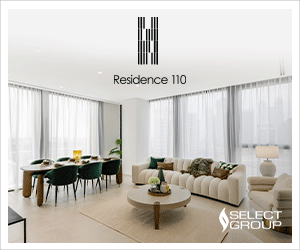The UAE, in a bid to attract more overseas investors, launched the golden and silver visa programs about two years ago. As expected, the program gained worldwide recognition since it allowed people long-term residency in the country, which was previously the biggest hurdle for investors, entrepreneurs, and people with special skills.
Many people, from across the globe, leveraged this opportunity and made the UAE, Dubai in particular, their second home. There was a notable increase in foreign investment in the UAE post the introduction of the golden and silver investor visa programs. Many sectors, including the property market, benefitted from this reform.
New Changes to Investor Visa Rules in Dubai and UAE

To make the investor visa in Dubai and all over the UAE more accessible to investors, the government has made more changes to its visa policies. Let’s take a look at these changes made to the investor visa policies:
Golden Visa for Real Estate Investors
- Earlier, the major prerequisite for obtaining the investor visa was that the applicant was required to make an investment of AED 5 million in the country. Now, it’s reduced to AED 2 million. This significant reduction will attract a lot of investors.
- The duration of the investor visa has also been extended from five years to ten years.
- Those applying for the investor visa are no longer required to visit the UAE every six months. This clause greatly benefits overseas investors.
Simply put, if you manage to buy a property in Dubai or anywhere in the UAE, valuing AED 2 million or higher, you get eligible for the 10-year investor visa program. Furthermore, your family also gets eligible for a 10-year residency in the UAE. In addition, if the original holder of the investor visa passes away, their family members can continue staying in the UAE until the end of the visa term.
Apart from the investor visa, changes have been made to other visa programs as well. Let’s take a glance at them:
Start-up Entrepreneurs/Investors
According to the new visa rules, entrepreneurs are eligible to get a golden visa by making an investment in a start-up. They have to meet three conditions to get this visa. These include:
- The start-up must be registered under the category of SME in the UAE.
- It should have a minimum revenue of AED 1 million.
- The idea of the start-up must be approved by either of these:
- The ministry of economy
- An official business incubator
- Local authorities
Apart from entrepreneurs, founders/co-founders of a successful start-up also hold the eligibility to apply for this visa if their company has been sold for AED 7 million or more.
Green Residence for Entrepreneurs
As an entrepreneur, you can also apply for a green residence visa by investing AED 500,000. Earlier, it was valid for 2 years only. However, after the changed rules, it will remain valid for 5 years. You can either invest in a new or already established business in the UAE.

Green Residence for Freelancers & Self-employed
The UAE government also allows self-employed and freelancers to get a green residence visa valid for five years. They do not require any sponsor from the host country to get this visa. However, they have to meet the following conditions:
- The candidate must have a specialised diploma or bachelor’s degree.
- They must have earned at least AED 360,000 in the last two years.
Effects of Changes to Investor Visa and Other Visas in the UAE
As stated above, the new visa changes are designed to attract more investment to the country while making it easier for people to make the UAE their second home. This allows investors, professionals, and entrepreneurs to plan their futures in the county for a long time without any difficulty.
According to the new changes, the age of children eligible to be sponsored is also changed. Earlier, it was 18 years, but now kids up to 25 years can be sponsored. Furthermore, there’s no age limit for the sponsorship of unmarried daughters.
These changes will be implemented in September 2022.



 Join Our Newsletter
Join Our Newsletter